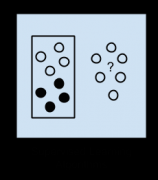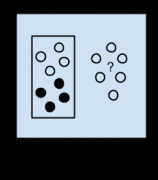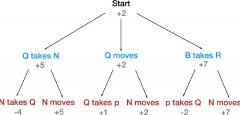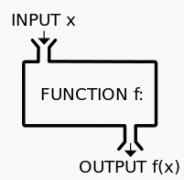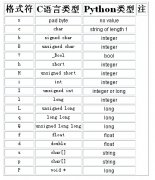跟老齐学Python之大话题小函数(2)(2)
如果用我们熟悉的for循环来做上面reduce的事情,可以这样来做:
>>> lst = range(1,6)
>>> lst
[1, 2, 3, 4, 5]
>>> r = 0
>>> for i in range(len(lst)):
... r += lst[i]
...
>>> r
15
for普世的,reduce是简洁的。
为了锻炼思维,看这么一个问题,有两个list,a = [3,9,8,5,2],b=[1,4,9,2,6],计算:a[0]b[0]+a1b1+...的结果。
>>> a
[3, 9, 8, 5, 2]
>>> b
[1, 4, 9, 2, 6]
>>> zip(a,b) #复习一下zip,下面的方法中要用到
[(3, 1), (9, 4), (8, 9), (5, 2), (2, 6)]
>>> sum(x*y for x,y in zip(a,b)) #解析后直接求和
133
>>> new_list = [x*y for x,y in zip(a,b)] #可以看做是上面方法的分布实施
>>> #这样解析也可以:new_tuple = (x*y for x,y in zip(a,b))
>>> new_list
[3, 36, 72, 10, 12]
>>> sum(new_list) #或者:sum(new_tuple)
133
>>> reduce(lambda sum,(x,y): sum+x*y,zip(a,b),0) #这个方法是在耍酷呢吗?
133
>>> from operator import add,mul #耍酷的方法也不止一个
>>> reduce(add,map(mul,a,b))
133
>>> reduce(lambda x,y: x+y, map(lambda x,y: x*y, a,b)) #map,reduce,lambda都齐全了,更酷吗?
133
filter
filter的中文含义是“过滤器”,在python中,它就是起到了过滤器的作用。首先看官方说明:
filter(function, iterable)
Construct a list from those elements of iterable for which function returns true. iterable may be either a sequence, a container which supports iteration, or an iterator. If iterable is a string or a tuple, the result also has that type; otherwise it is always a list. If function is None, the identity function is assumed, that is, all elements of iterable that are false are removed.
Note that filter(function, iterable) is equivalent to [item for item in iterable if function(item)] if function is not None and [item for item in iterable if item] if function is None.
这次真的不翻译了(好像以往也没有怎么翻译呀),而且也不解释要点了。请列位务必自己阅读上面的文字,并且理解其含义。英语,无论怎么强调都是不过分的,哪怕是做乞丐,说两句英语,没准还可以讨到英镑美元呢。
通过下面代码体会:
>>> numbers = range(-5,5)
>>> numbers
[-5, -4, -3, -2, -1, 0, 1, 2, 3, 4]
>>> filter(lambda x: x>0, numbers)
[1, 2, 3, 4]
>>> [x for x in numbers if x>0] #与上面那句等效
[1, 2, 3, 4]
>>> filter(lambda c: c!='i', 'qiwsir') #能不能对应上面文档说明那句话呢?
'qwsr' #“If iterable is a string or a tuple, the result also has that type;”
至此,用两此介绍了几个小函数,这些函数在对程序的性能提高上,并没有显著或者稳定预期,但是,在代码的简洁上,是有目共睹的。有时候是可以用来秀一秀,彰显python的优雅和自己耍酷。


